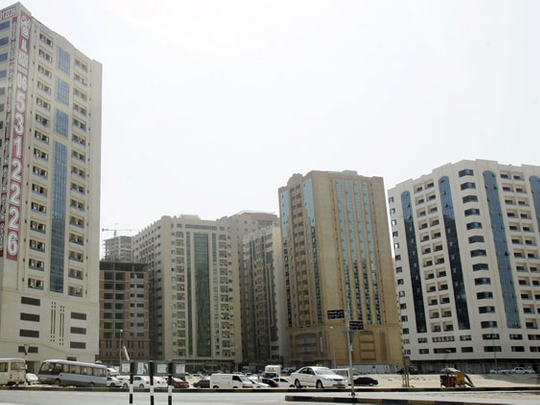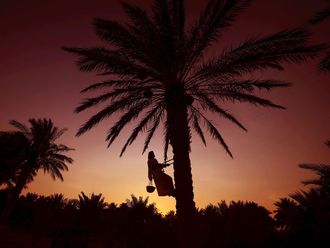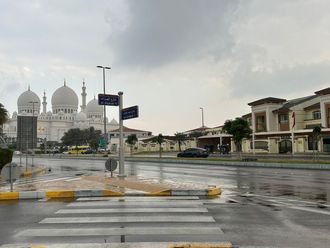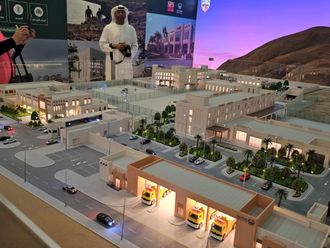
Sharjah: Property owners with claddings on their buildings have been urged to revamp and upgrade their building facades to reduce the threat from fires.
As many as 200 buildings in Sharjah have been inspected and two buildings have had their claddings changed so far this year. The inspections were carried out in commercial and industrial areas.
Officials from Sharjah Civil Defence and Sharjah Municipality have carried out several field inspections to ensure the highest quality standards and specifications are maintained in all buildings, especially in buildings with aluminium cladding.
Colonel Sami Khamis Al Naqbi, Director General of Sharjah Civil Defence, told Gulf News that as many as 200 buildings in Sharjah have so far been inspected by Sharjah Civil Defence, along with Sharjah Municipality. He added that two buildings changed their claddings following the inspections.

Building owners have been instructed to replace all flammable facades with safer material, while still meeting the aesthetic criteria.
In 2016, orders were issued by Sharjah Civil Defence to prohibit all new buildings over 23 metres in height from having claddings. All existing buildings that were over 23 metres were told to have their claddings replaced with safer, non-flammable material.
Al Zahra Hospital, Fine Fair Building and Nasser Tower in Sharjah were among the buildings that responded to the request last year and had their claddings replaced with safer material. Colonel Al Naqbi said: “The use of aluminium cladding causes many risks. Insulating layers can ignite and the method of installing the cladding can lead to a rapid spread of fire.”
Col Al Naqbi said all old buildings found with claddings — about 200 in Sharjah — will now have to get their claddings replaced. “More than 200 old buildings in the emirate have claddings with banned material,” said Al Naqbi. “The department, in coordination with the authorities concerned, is working to have them replaced with safer materials, Al Naqbi said. “Sharjah Civil Defence is now considering a programme to get buildings to replace their old claddings and even help building owners conduct replacements and find alternative material at a reduced cost,” he added.
He stressed that the safety of residents in buildings within the emirate remains the top priority of Sharjah Civil Defence. “Sharjah Civil Defence is encouraging developers, real estate owners and contractors to adopt safer methods and systems,” he said.
When can a cladding be dangerous?
In fire safety terms, a cladding can be dangerous if the cladding in question contains combustible material, such as expanded polystyrene (EPS) or polyurethane (PUR). When such material is exposed to a fire, the flames can spread to the exteriors of the building.
Aluminium panels consist of two layers. The material’s core typically consists of a mineral-based material, polyethylene or both and the material has differing resistances to fire.









